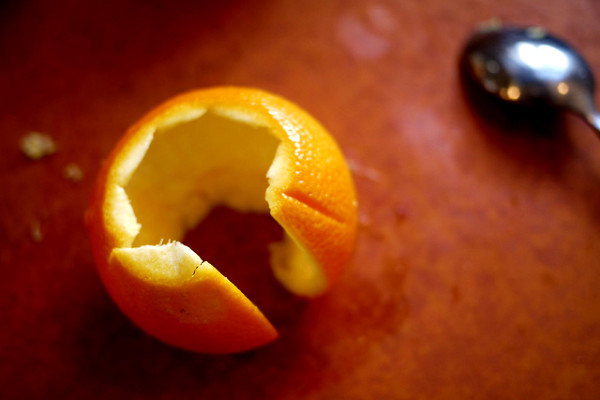Though some orange varieties favor the late spring, most ripen in the fall and winter. I mention that to set up a quote from Robert Farrar Capon’s book The Supper of the Lamb, which could have have added significance as you next reach for an orange.

Whether you rip off the peel in chunks or carefully remove it in a long ribbon, “[n]othing is more likely to become garbage than orange rind,” he says; “but for as long as anyone looks at it in delight, it stands a million miles from the trash heap.”
Though ostensible writing a cookbook, Capon is an Episcopal priest and cannot help himself from theological reflection, even concerning orange rinds. He quickly turns looking in delight to a tangent about all of creation. The world, he says,
remains outside the cosmic garbage can of nothingness, not because it is such solemn necessity that nobody can get rid of it, but because it is the orange peel hung on on God’s chandelier, the wishbone in His kitchen closet. He likes it; therefore, it stays. The whole marvelous collection of stones, skins, feathers, and string exists because at least one lover has never quite taken His eye off it, because the Dominus vificans has his delight with the sons of men.
The last line there is a reference to divinity personified as wisdom in Proverbs 8.31. Capon’s point is that God created us and sustains our existence because, rather simply, he gets a kick out of us. And I suppose that’s right.
Other passages of Scripture would back that up, for instance Revelation 4.11: “[T]hou hast created all things, and for thy pleasure they are and were created” (KJV). The longstanding theological tradition of the church squares with it as well.
God didn’t create us because he needed something from us, but because he wanted to give something to us: his kindness, his love, his grace. Or, back to Capon’s tangent, we exist because God likes us.
















